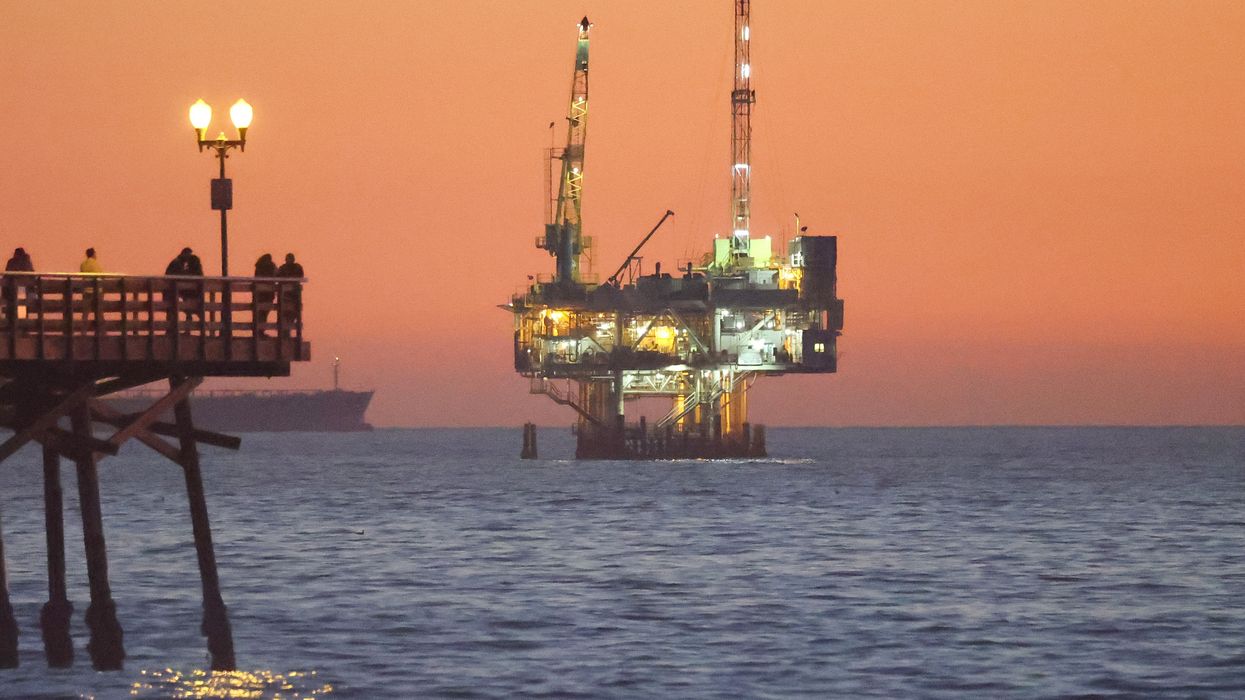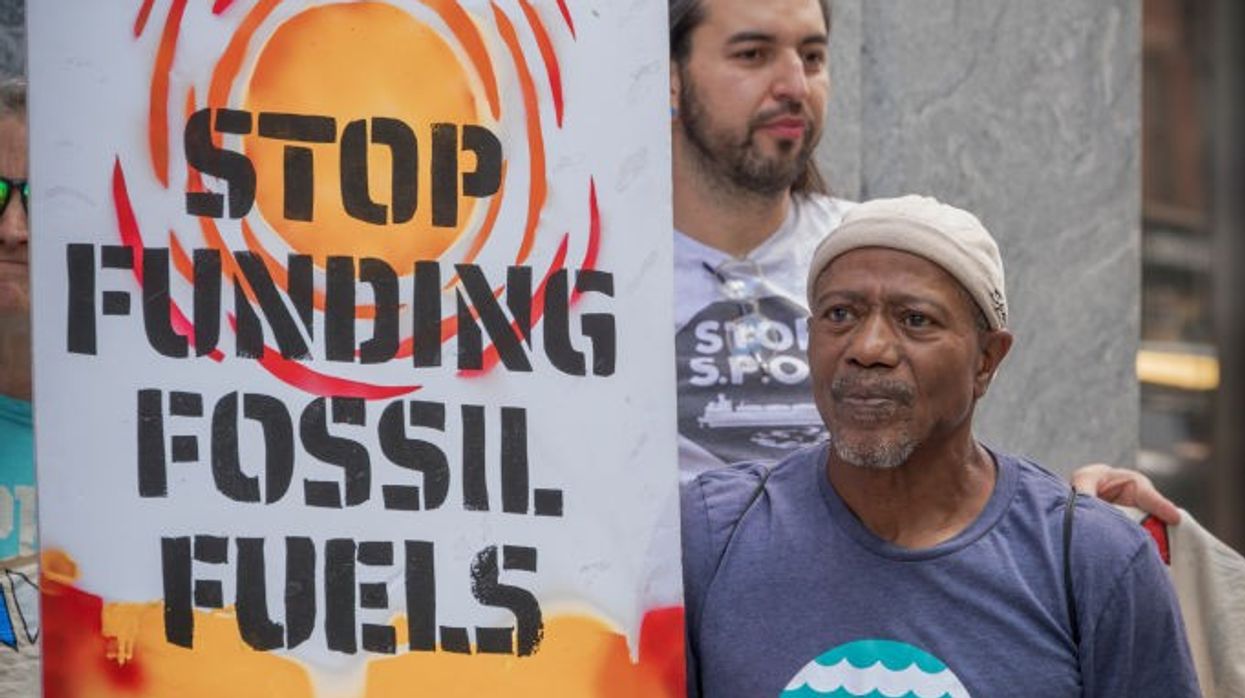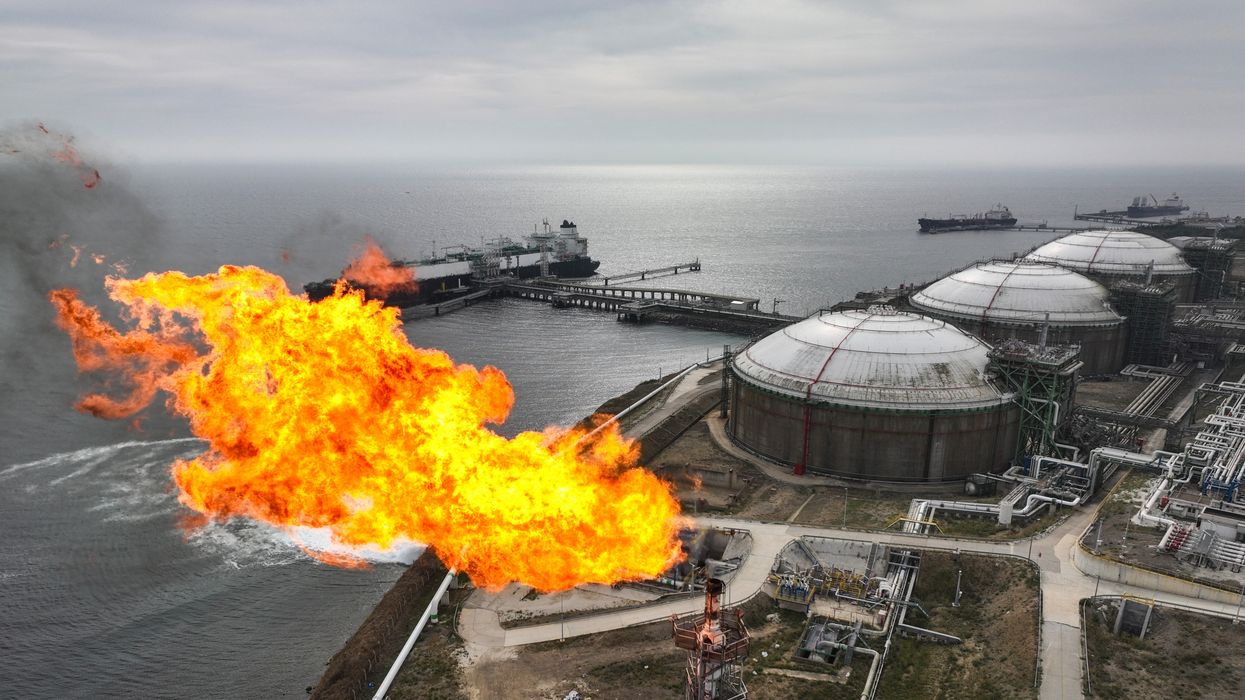Four years after the International Energy Agency (IEA) stated that no new oil and gas fields have a place on a pathway to limiting planetary heating to 1.5°C—marking global energy experts' public endorsement of warnings that had come from climate scientists for years prior—96% of fossil fuel firms are exploring and developing new oil and gas resources, said Urgewald.
Short-term expansion is up 33% since 2021, when the IEA issued its warning, with fossil fuel giants planning to bring 256 billion barrels of oil and gas equivalent (bboe) into production in the coming years.
Five companies account for about one-third of global short-term expansion: QatarEnergy (26.2 bboe), Saudi Aramco (18.0 bboe), ADNOC in the United Arab Emirates (13.8 bboe), Russian state-owned entity Gazprom (13.4 bboe) and US firm ExxonMobil (9.7 bboe).
Nils Bartsch, head of oil and gas research at Urgewald, said the largest fossil fuel companies in the world "are treating the Paris Agreement like a polite suggestion, not a survival plan."
The analysis comes a decade after 195 countries signed the legally binding Paris Agreement, committing to develop and implement national climate action plans to draw down fossil fuel emissions.
"With 256 billion barrels of new projects on the table, this is not a transition—it is defiance," said Bartsch.
The Paris Agreement also included a demand for wealthy countries to contribute funds to help the Global South mitigate and adapt to the climate emergency, and annual UN conferences have addressed climate finance, but the industry is still spending about 75 times more on oil and gas exploration than governments have pledged to the UN Loss and Damage Fund, according to the report.
On average, companies listed in the Global Oil and Gas Exit List (GOGEL) spent an average of $60.3 billion over the last three years on oil and gas expansion.
“Brazil is showing an alarming level of climate hypocrisy—presenting itself as a climate leader at COP30 while allowing oil and gas expansion right at the summit’s doorstep, threatening one of our most fragile ecosystems."
The US has pledged just 17.5 million to the Loss and Damage Fund, while two of its biggest fossil fuel companies, Chevron and ExxonMobil, have spent $1.3 billion and $1.1 billion on oil and gas exploration, respectively, in the last three years.
"While the Loss and Damage Fund sits almost empty, oil and gas companies are investing more than $60 billion each year into new exploration, exacerbating the problem the fund is meant to alleviate. This is financial and moral negligence. Regulators and supervisory authorities need to start treating this as a risk, not a footnote," said Fiona Hauke, oil and gas researcher and financial regulation expert at Urgewald.
The report was released a week before world leaders are scheduled to meet in Belém, Brazil for the 2025 United Nations Climate Change Conference (COP30), even as state-owned fossil fuel company Petrobras begins drilling in Foz do Amazonas Basin in the fragile, biodiverse Amazon rainforest.
Petrobras was named in GOGEL as the 15th largest fossil fuel exporter worldwide, currently spending $1.1 billion annually searching for new reserves, as Brazil prepares to host a meeting that is meant to focus on implementing emissions reduction plans.
“Brazil is showing an alarming level of climate hypocrisy—presenting itself as a climate leader at COP30 while allowing oil and gas expansion right at the summit’s doorstep, threatening one of our most fragile ecosystems,” said Nicole Oliveira, executive director of the Arayara International Institute in Brazil.
GOGEL also pointed to oil and gas expansion in the US under the Trump administration, with the US overtaking China as the number-one developer of gas-fired power even as a recent UN and World Bank report found that nine out of 10 renewable energy projects are cheaper than even the lowest-cost fossil fuel alternatives.
The US is home to the largest LNG export developer worldwide, Venture Global, as companies are planning an export capacity of around 847 million tons per year—a 171% increase from current operational capacity.
Urgewald noted that even TotalEnergies CEO Patrick Pouyanné recently acknowledged that the LNG sector is "building too much."
"Analysts warn that if current plans proceed, the world could face an oversupplied gas market within five years, with far more capacity than global demand can absorb," reads GOGEL. "Yet despite industry leaders acknowledging the risk, investment continues."
"US fracking companies are producing far more gas than they can sell domestically," adds the report, noting that the country is turning to Mexico as an export platform. "Now faced with a flood of excess gas, companies are racing to build new LNG facilities to liquefy their surplus and push it onto countries around the globe."
Pablo Montaño, director of Conexiones Climáticas, Mexico, said new LNG projects "are not for the benefit of Mexicans."
"They will import fracked gas from the US, liquefy it in Mexico and send it straight to Asia. Gas liquefaction is an incredibly dirty business," he said.
Despite clear warnings from energy and climate experts, said Cathy Collentine, Beyond Dirty Fuels campaign director at the Sierra Club in the US, "fossil fuel expansion continues to put communities and the climate at risk."
"Under the Trump administration," she said, "we are seeing a disregard for both to do the bidding of Big Oil and Gas."




